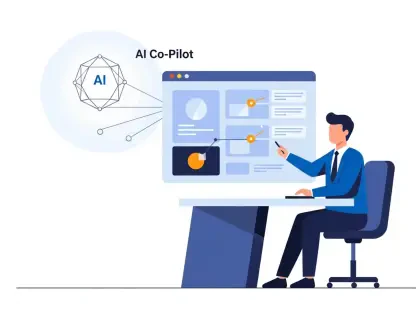In a world where cybersecurity threats are becoming more sophisticated, it is imperative to adopt advanced authentication technologies that offer both robust protection and seamless user experiences. This year’s SC Awards finalists have showcased innovative solutions designed to strike a balance between stringent security measures and user convenience. These technologies are leading the charge in transforming the landscape of authentication, utilizing groundbreaking approaches such as biometric verification, decentralized identity storage, and AI-driven analytics to bolster defenses against unauthorized access and cyberattacks.
Biometric Verification and Decentralized Identity Storage
The 1Kosmos Platform is a shining example of how biometric verification can enhance security without sacrificing convenience. By integrating biometric authentication, decentralized identity storage, and blockchain-based security, this platform ensures that user data remains secure while providing a frictionless experience. Widely adopted across various sectors including finance, healthcare, and government, 1Kosmos continues to evolve, offering AI-driven risk assessment and behavioral analytics to further strengthen its defenses. This approach minimizes the risk of data breaches by ensuring that personal information is not stored in a single, vulnerable location.
The use of decentralized identity storage marks a significant departure from traditional, centralized databases that can be attractive targets for cybercriminals. By distributing identity information across a blockchain, 1Kosmos ensures that no single point of failure exists, making it substantially more difficult for attackers to compromise sensitive data. The integration of AI-driven analytics also allows for real-time detection and response to potential threats, ensuring that security measures can adapt dynamically to the evolving threat landscape.
Managing Non-Human Identities in Complex Cloud Environments
Aembit Non-Human Identity and Access Management Platform addresses the often-overlooked area of non-human identities, such as workloads and APIs, which are prevalent in complex cloud infrastructures. This platform provides robust identity and access management (IAM) solutions specifically designed to secure these types of identities. By integrating risk-based policy enforcement and AI-driven anomaly detection, Aembit ensures that even the most complex cloud environments can be effectively safeguarded against unauthorized access.
The importance of securing non-human identities cannot be overstated in today’s digital landscape. With the proliferation of microservices and APIs, the attack surface has expanded significantly, making it crucial to implement comprehensive security measures. Aembit’s platform excels in this regard by continually monitoring for anomalies and enforcing policies that adapt to the specific risk profiles of different entities. This dynamic approach helps organizations maintain a high level of security without imposing burdensome restrictions on legitimate operations.
Passwordless Multi-Factor Authentication and Phishing Resistance
Axiad Conductor offers a comprehensive solution to the long-standing issue of weak passwords by integrating passwordless multi-factor authentication (MFA), certificate-based authentication (CBA), and phishing-resistant access controls. This platform is widely used by enterprises and government agencies to enforce Zero Trust security models, which assume that every access request, whether internal or external, could be a potential threat. By eliminating the reliance on traditional passwords, Axiad Conductor significantly reduces the risk of credential-based attacks.
The adoption of passwordless authentication is a critical step forward in enhancing security. Traditional passwords are often weak, reused, or otherwise compromised, making them a frequent target for cyberattacks. Axiad Conductor addresses this vulnerability by offering authentication methods that do not rely on passwords, such as biometrics, hardware tokens, and smart cards. This not only improves security but also streamlines the user experience by eliminating the need to remember and manage multiple passwords.
Adaptive, Risk-Based Authentication Policies
Portnox Conditional Access for Applications takes a tailored approach to authentication by delivering adaptive, risk-based policies that respond to user behavior and device posture. This platform supports Zero Trust models and is increasingly adopted in regulated industries where stringent security measures are a necessity. By continuously evaluating the context of access requests, Portnox ensures that only legitimate users can gain entry while minimizing disruptions to the user experience.
Adaptive authentication is becoming increasingly important as organizations recognize the need for security measures that can dynamically respond to varying levels of risk. Portnox excels in this area by implementing policies that take into account factors such as user behavior, geolocation, and device security posture. This allows for a more nuanced approach to access control, where lower-risk activities can proceed with minimal friction while higher-risk actions trigger additional verification steps. This balance helps maintain strong security without compromising on user convenience.
Multi-Factor Authentication Made Easy
The WatchGuard AuthPoint MFA platform offers an easy-to-deploy multi-factor authentication solution that leverages mobile push notifications, QR codes, and biometric verification to provide robust security. Widely used by enterprises, small and medium-sized businesses (SMBs), and managed service providers (MSPs), WatchGuard AuthPoint continues to evolve, incorporating enhancements in identity federation and AI-driven analytics to stay ahead of emerging threats. This platform’s user-friendly design ensures that organizations can implement strong security measures without imposing excessive complexity on users.
The simplicity and effectiveness of WatchGuard AuthPoint make it an attractive option for organizations of all sizes. The use of mobile devices for authentication—through push notifications and QR codes—allows for a seamless user experience while still providing strong security. Additionally, the integration of biometric verification adds another layer of protection, making it more challenging for unauthorized users to gain access. As cyber threats continue to evolve, WatchGuard’s ongoing development in AI-driven analytics ensures that it remains a robust and versatile solution.
A Future-Oriented Approach to Authentication
In today’s world, cybersecurity threats are growing more sophisticated, making it essential to implement advanced authentication technologies that provide both strong protection and smooth user experiences. This year’s SC Awards finalists have presented innovative solutions aimed at balancing tight security measures with user convenience. These cutting-edge technologies are revolutionizing the authentication landscape through methods such as biometric verification, decentralized identity storage, and AI-driven analytics. The focus on biometric verification allows for secure, easier access for users by using unique physical characteristics like fingerprints or facial recognition. Decentralized identity storage helps in protecting personal information by not relying on a single, vulnerable point of failure. AI-driven analytics can predict and thwart potential threats by analyzing patterns and behaviors. Together, these advancements enhance defenses against unauthorized access and cyberattacks, pushing the boundaries of what is possible in cybersecurity.









